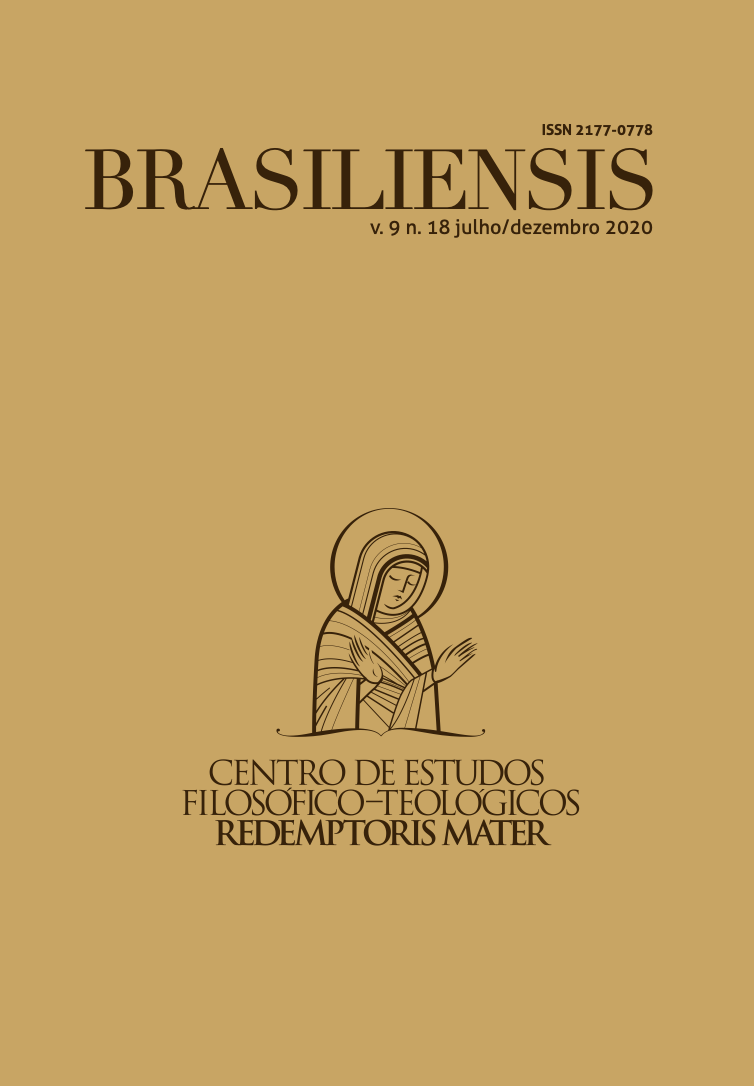The dignity of the person as foundation of the Brazilian State A retrieval of Boethius through the Summa Theologica
Main Article Content
Abstract
The Brazilian Constitution states that the dignity of the human person is a foundation of the Federative Republic of Brazil. In this theme, very much in vogue in parliament and in the legal system, especially in today’s times, there is an inversion of roles: instead of the dignity of the person being, a priori, the legal construct of protection and the very notion of person, a posteriori, it is this same legal system that seems to create its notion and recognize its extension, as the law develops. With this assumption, there are modern discussions about euthanasia, about the so-called “right to suicide” and, mainly, about the “right” to abortion. In all three cases, there is a legal manipulation of the extension of the concept of person and the protection of his dignity, in order to apply it with more or less intensity to these or those individuals, weakening the protection to his personality. The article examines the very origin of the notion of person in Western philosophy; rescues Boethius’ classic notion of person, under the focus of Tomas Aquinas, to demonstrate that this dignity is not manipulable by law or by the State itself, because it precedes and justifies it.
Article Details

This work is licensed under a Creative Commons Attribution-NonCommercial-NoDerivatives 4.0 International License.
The Creative Commons Attribution (CC BY) license is the most permissive Creative Commons license. It allows others to distribute, remix, adapt, and build upon your work, even for commercial purposes, as long as they give you credit for the original creation.
How to Cite
References
AQUINO, Santo Tomás de. Suma Teológica. Campinas: Cedet, 4. ed., v. 1, 1ª Parte, 2016.
CLARKE, W. Norris. Person and being. Milwaukee: Marquette University Press, 2008.
DESCARTES, René. Discurso do Método, Para Bem Conduzir a Própria Razão e Procurar Verdade nas Ciências. Tradução de Jacob Guinsburg e Bento Prado Jr. Notas de Gérard Lebrun. Disponível em < https://joaocamillopenna. files.wordpress.com/2014/02/descartes-discurso-do-mc3a9todo-trad-jacc3b3-guinsburg-e-bento-prado-jr-com-notas-de-gerard-lebrun-publicac3a7c3a3o-autorizada-pelos-detentores-dos-direitos.pdf >. Acesso em 07 de outubro de 2020.
FESER, Edward. Locke. Oneworld Thinkers Series. Oxford, Oneworld Publications, 2007.
GARDEIL, Henri-Dominique. Iniciação à filosofia de São Tomás de Aquino: Introdução, lógica, cosmologia. São Paulo: Paulus, 2013.
GILSON, Étienne. Deus e a Filosofia. Lisboa: Edições 70, 2002.
JACOBINA, Paulo Vasconcelos. Estado laico, povo religioso. Reflexões sobre liberdade religiosa e laicidade estatal. São Paulo: Ltr, 2015.
JOSEPH, Miriam. O Trivium. As artes liberais da lógica, da gramática e da retórica. São Paulo: É Realizações, 2011.
MOUNIER, Emmanuel. O Personalismo. São Paulo: Livraria Duas Cidades, 1964.
MARITAIN, Jacques. Tres Reformadores: Lutero – Descartes – Rousseau. Madrid: Ediciones Encuentro, 2006.
RATZINGER, Joseph. Dogma e anúncio. São Paulo: Loyola, 2007.
SOLOVYEV, Vladimir. Russia and the Universal Church. London: Geoffrey Bles; The Centenary Press, 1948.
VEATCH, Henry B. Realism and nominalism revisited. Milwaukee: Marquette University Press, 1954.
VEATCH, Henry Babcock. Intentional logic: a logic based on philosophical realism. London: Oxford University Press, 1952.
VILLEY, Michel. Questões de Tomás de Aquino sobre direito e política. São Paulo: Martins Fontes, 2014.
WUELLNER, Bernard. Dictionary of scholastic philosophy. Fitzwilliam: Loreto Publications, 2012.

